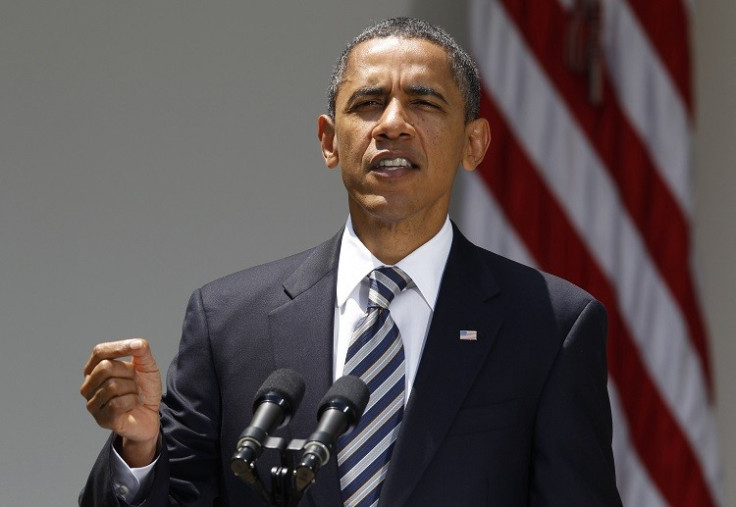OECD: US Must End Fiscal Deadlock for Sake of World Growth

The rate of global recovery will be slower than predicted over the next two years because of stumbling growth in some emerging economies and uncertainty over US monitory policy, according to the Organisation for Economic Co-operation and Development (OECD).
The world economy will grow at a 2.7% rate this year, before accelerating to a 3.6% rate in 2014 and 3.9% in 2015, which is more modest than OECD predictions made in May.
The 34-nation club highlighted the need to strike a balance with the US Federal Reserve's winding-down of asset purchases and the impact this could have on vulnerable emerging market economies.
"It calls for an end to fiscal deadlock in the United States, through the abolition of the nominal debt ceiling and implementation of a co-ordinated medium-term fiscal plan," said the OECD.
The eurozone
The thrust of this latest World Economic Outlook demonstrates a shift from recent years, which have tended to focus on the banking and monetary problems in the eurozone.
Weakness in the European banking system remains a major drag on growth in the region, however.
The OECD emphasised the need for rigorous implementation of the Asset Quality Review and stress tests in 2014, followed up by bank recapitalisation where needed.
The euro area can expect growth of 1% in 2014 and 1.6% in 2015.
The UK
The OECD's outlook for the UK was positive: the UK economy is expected to grow by 1.4% this year and 2.4% next year.
This compares favourably with the 0.8% and 1.5% forecasted in the previous OECD Economic Outlook.
The Bank of England monetary policy was deemed appropriate in the circumstances.
However, authorities should keep an eye on the Help to Buy scheme in case the UK housing market gets over-heated, the OECD said.
Chris Leslie, Labour's shadow chief secretary to the Treasury said: "After three damaging years of flatlining this OECD forecast for the UK is welcome, but for millions of families this is still no recovery at all.
"As the OECD says, real wages are still falling in Britain. In fact working people are on average £1600 a year worse off since David Cameron came to office.
"The OECD is also right to warn that we need to boost housing supply. We need a recovery that's built to last, so we must also bring forward infrastructure investment now to build thousands of affordable homes.
"And we need to make long-term changes so that our economy works for working people. That's why Labour will cut business rates for small firms, reform our banks, strengthen the minimum wage and introduce a compulsory jobs guarantee for the long-term unemployed."
The US
The OECD predicted growth in the US to be 2.9% in 2014 and 3.4% in 2015.
The Fed had to be cautious about how it scaled down its massive $85bn a (£52.9bn, €62.6bn) month asset purchase programme due to the effect it was having on some emerging market countries.
"The reaction to discussion in early summer regarding the tapering of asset purchases by the US Federal Reserve was surprisingly strong and increased concerns about developments in some EMEs added to market tensions and sharp capital outflows programme as that could harm emerging markets," said the OECD.
"Brinkmanship over fiscal policy in the United States remains a key risk and uncertainty. As discussed in this Economic Outlook, this creates on-going uncertainty and poor policy choices, while hitting the debt ceiling could knock the US and the global recovery off course.
"The debt ceiling needs to be scrapped and replaced by a credible long-term budgetary consolidation plan with solid political support," it said.
© Copyright IBTimes 2025. All rights reserved.






















